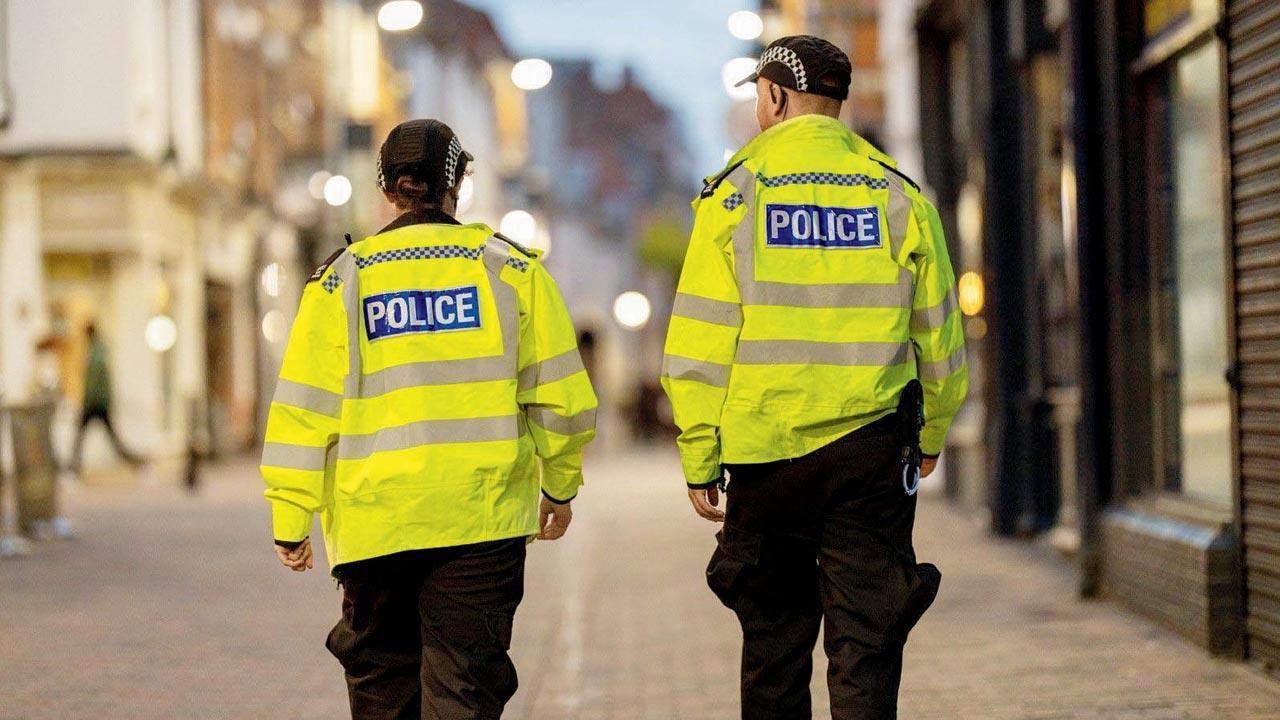Countries around the world need to understand and accept that we are not the most tolerant people on Earth

The English media were horrified that people could attack each other for no rational reason. Their reaction surprised me, given how long the English have spent on our shores. Leicestershire Police/Twitter
 I have never been to Leicester. It is supposedly one of the oldest cities in England, going back to Romans and the Iron Age, but I hadn’t heard much about it until a few weeks ago, when some good-natured sloganeering by a few of my fellow countrymen prompted a bit of violence on its streets. A few communal statements were innocently made in public, apparently, and managed to anger a lot of people. I don’t know if there was a trigger for this behaviour, but it was probably just their way of spending an evening. It could have been a cricket match, or something equally earth-shattering related to balls.
I have never been to Leicester. It is supposedly one of the oldest cities in England, going back to Romans and the Iron Age, but I hadn’t heard much about it until a few weeks ago, when some good-natured sloganeering by a few of my fellow countrymen prompted a bit of violence on its streets. A few communal statements were innocently made in public, apparently, and managed to anger a lot of people. I don’t know if there was a trigger for this behaviour, but it was probably just their way of spending an evening. It could have been a cricket match, or something equally earth-shattering related to balls.
ADVERTISEMENT
The English media were horrified that people could attack each other for no rational reason. Their reaction surprised me, given how long the English have spent on our shores. How could they have been here for a few hundred years and not noticed the intolerance that is endemic to the Indian experience? How could they not have noticed that we struggle with basic things like tolerance, empathy, or understanding? How could they not have noticed what occurred in 1947 because we had a few minor issues about whose god was the right one?
I looked at a few comments made by English journalists online, excoriating the Indian community for poisoning their multicultural neighbourhoods, and was amused because it showed how little they still know about our country and its history. Anyone who spends time with an Indian knows we don’t exactly bring peace and joy to any part of the world. We bring cheap labour, way too many repressed software engineers, and a few management graduates desperate to make it in the West. That’s really all there is.
The clue that eludes foreigners lies in our first questions to any other Indians we meet abroad. We ask for their full names because surnames are a huge clue. The surnames inform us about religious beliefs and what caste they belong to, based on which we can instantly adjust our demeanour to friendliness or hostility. Discrimination is an integral part of our identity, and deep insecurity is tied into every aspect of our behaviour abroad. I was sad because the English journalists didn’t seem to know this. It was obvious that they hadn’t spent much time with too many Indians in their part of the world.
Every country has a few things they are proud of; exports of some kind that can be material or something emotional that is harder to define. I like to think that Indians bring a healthy dose of bigotry and racism to every corner of the world they touch. This may sound like a bad thing, but only if you don’t understand that we have very little else going for us. It’s not as if we can talk to the world about infrastructure, or healthcare, or gender equality, or the abolishment of poverty. We have failed on all those fronts for decades, so why can’t we embrace our bigotry and proudly tell every country our representatives step into that this is the baggage we intend to always carry with us? Why not celebrate it for a change?
One way of accomplishing this is by doing more to publicize our colourful history of communal rioting, putting aside the obvious examples of the Partition and the years immediately before or after it. We can talk a lot more about the 1964 Kolkata riots, for instance, or the 1983 Nellie massacre in Assam. Then there are the many riots in our most peaceful, alcohol-free state of Gujarat, between 1969 and 1989, or the 1987 Hashimpura massacre in Uttar Pradesh. We can also discuss the two months of violence in Bhagalpur in 1989 and our very own Bombay riots in 1992. Luckily, enough people abroad know about the 2002 riots, presumably because those murders gifted us with so many new political leaders, some of whom are still on the world stage embracing other leaders. More recently, the 2020 Delhi riots left a reported 53 dead, which ought to be worthy of some publicity too.
Cynics will be upset about this depiction of Indians as insecure, blood-thirsty hooligans, but we have to be a little more accepting of who we are. We continue to slip on many, many world rankings, from human development and press freedom to the importance of our passports, but let it not be said that we will abandon the only issue that really matters: our religion versus everyone else’s.
When he isn’t ranting about all things Mumbai, Lindsay Pereira can be almost sweet. He tweets @lindsaypereira
Send your feedback to mailbag@mid-day.com
The views expressed in this column are the individual’s and don’t represent those of the paper
 Subscribe today by clicking the link and stay updated with the latest news!" Click here!
Subscribe today by clicking the link and stay updated with the latest news!" Click here!







